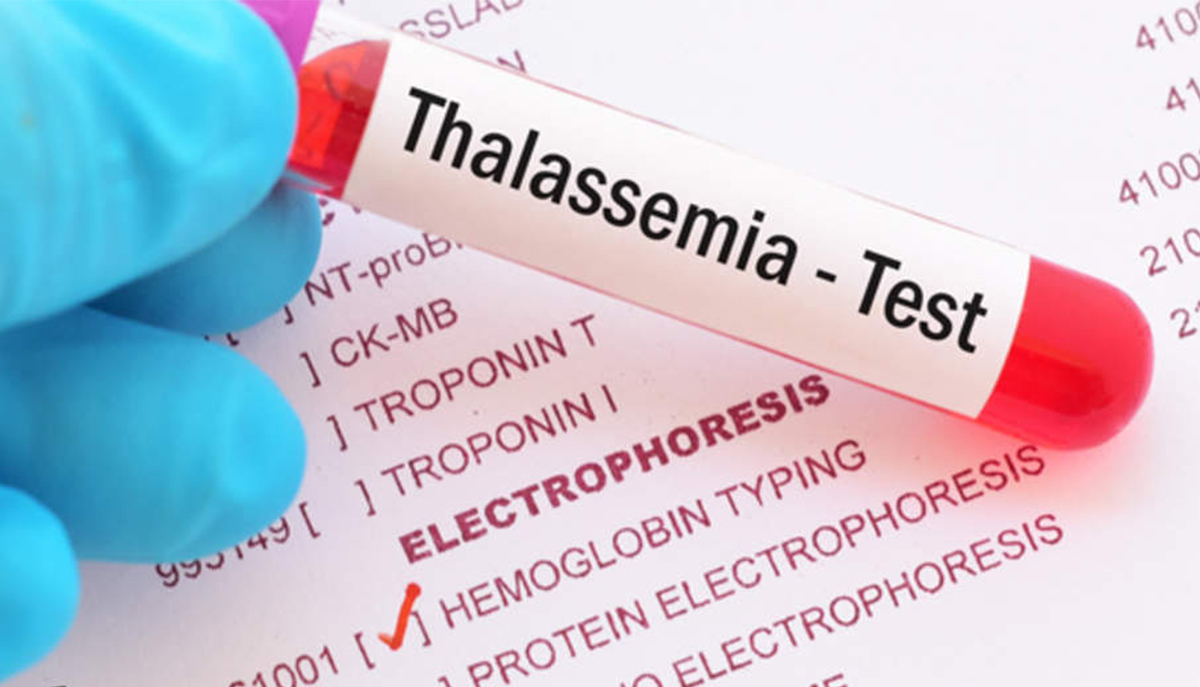Dr Richa Sharma & Dr Amit Basnotra
Fertility can sometimes be indirectly impacted by certain medical and surgical disorders. Thalassemia is one such concern which may ne incidentally detected in fertility screening of the couple.
What is Thalassemia ?
Thalassemia is a disease of the blood in which there is increased destruction of the red blood cells which inturn results into a condition which causes the body to produce abnormal haemoglobin red blood cells, which in turn causes anaemia. The patients of thalassemia may have mild, moderate or severe anaemia.Severe anaemia needs regular blood transfusions for treatment and may not be compatible with long life span with evident reasons.
Thalassemia is caused by mutations in the DNA of cells that make hemoglobin – the substance in your red blood cells that carries oxygen throughout your body. The mutations associated with thalassemia are passed from parents to children
If you have thalassemia, your outlook depends on the type of the disease. People who have mild or minor forms of thalassemia can typically lead normal lives. In severe cases, heart failure is a possibility. Other complications include liver disease, abnormal skeletal growth, and endocrine issues.
Some people with thalassemia – usually with thalassemia major – need regular blood transfusions because their body makes such low amounts of hemoglobin. … Many times people with thalassemia are prescribed a supplemental B vitamin, known as folic acid, to help treat anemia. Folic acid can help red blood cells develop
What type You have ?
The type of thalassemia a person may have depends on what they inherited and how much they inherited.It needs pedigree analysis to find out the source
The two types of thalassemia are –
Alpha thalassemia and
Beta thalassemia.
In Alpha thalassemia, having one faulty gene will cause little or no effect to a person. Two faulty genes are associated with mild anaemia. Three mutated genes result in haemoglobin H disease that needs regular blood transfusions to treat chronic anaemia. Unborn babies with four faulty genes are unlikely to survive pregnancy.
Subtypes –
Beta thalassemia also has different forms: -beta thalassemia major which needs lifelong regular blood transfusions.
Beta thalassemia intermediate -is also known as non-transfusion dependent thalassemia or NTDT. This is a milder form of the condition and the severity will differ between individuals, from mild anaemia to the need for regular blood transfusions.
Inheritance-
The thalassemia are inherited in an autosomal recessive manner. At conception, each sib of an affected individual has a 25% chance of being affected, a 50% chance of being an asymptomatic carrier, and a 25% chance of being unaffected and not a carrier. Heterozygotes (i.e., carriers) may be slightly anaemic but are clinically asymptomatic. Carriers are often referred to as having thalassemia minor (or ?-thalassemia minor). Carrier testing for individuals at risk (including family members, gamete donors, and members of at-risk ethnic groups) is possible.
Who Gets Beta Thalassemia? People inherit the genes for beta thalassemia from their parents. A child gets one beta protein gene from the mother and one from the father: Someone who inherits the gene change in the beta protein from one parent has beta thalassemia minor (beta thalassemia trait).
Impact Of Thalassemia on Fertility-
Women with thalassemia who require blood transfusions often have a higher rate of infertility. However, some women with the disease are able to become pregnant
With recent therapeutic advances, thalassemic patients can now reach adulthood and attain reproductive capacity. Endocrine complications due to hemosiderosis and especially hypogonatotropic hypogonadism, which present either with sexual infantilism and primary amenorrhea or with secondary amenorrhea, are common in thalassemic women. Prenatal testing and pre-implantation genetic diagnosis have a role in an infertile couple facing such issue.
How Blood Transfusion and Iron Overload Can Impact Fertility-
Long-term transfusion therapy for the correction of anaemia leads to toxic iron overload, resulting in significant morbidity including liver damage, cardiac complications and endocrine dysfunction. The commonest abnormality is hypogonadotropic hypogonadism, which presents with primary amenorrhoea, delayed puberty or secondary amenorrhoea with consequent infertility. Nevertheless, current improvements in the management of thalassemia disorders offer patients the possibility of having a regularly functioning reproductive system and increased chances of achieving a pregnancy.
Ovulation induction with gonadotropin has been seen to give optimistic results in such patients
Also, the infertility observed in this group of patients is probably mostly attributed to impaired hypothalamic-pituitary-ovarian axis and less to gonadal dysfunction. However, there are minimal data directly associating the role of iron, iron-induced Oxidative stress, and antioxidant supplementation with the fertility potential of these patients.
Trending Now
E-Paper


